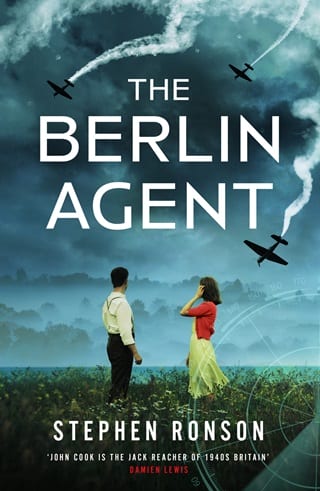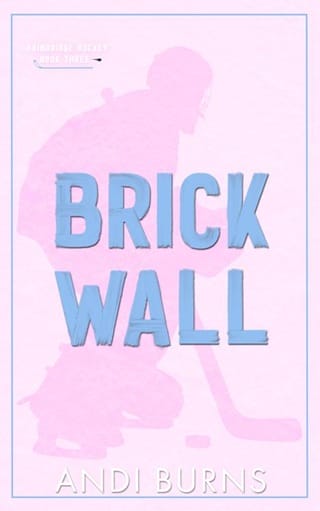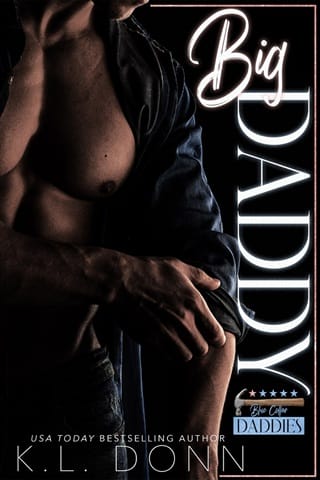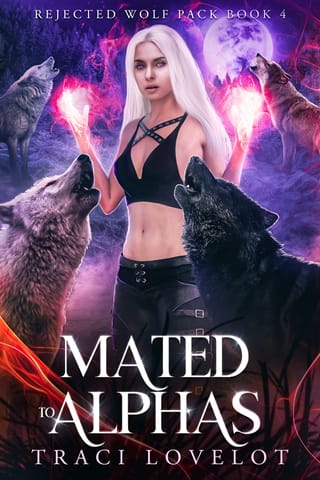17
‘The Germans are not the enemy of the working man. We should be making a treaty with Berlin for a peaceful future. If we don’t, we’ll be trapped in this cycle of endless war until there’s nobody left to fight.’
The speaker limped across the makeshift stage, a war wound slowing him down. Not many men our age without some kind of injury. He was dressed in an approximation of a working man’s clothes – starched tweed and a cloth cap – but his voice gave him away. This was a man who’d been educated in all the right places. Probably had a collection of ties that got him into various London clubs. And now he was here to tell us little people what to think.
As he stepped into the dim pool of yellow light that passed for a spotlight, I realised who it was. Vaughn Matheson, the man I’d bumped into on the Forest, underneath the freshly arrived parachute, turning up again like a bad penny. I wondered if he could see me, in the dark of the auditorium.
The church hall was packed. Chairs had been set out in rows, theatre style. Margaret and I had arrived with only minutes to spare and were forced to take seats near the front. It was a warm evening, and we’d had to hurry to get there on time.
The council had been putting on debates once a month. I’d seen the posters around town and ignored them until now. My preferred evening activity was sitting quietly at my local with my old friend Doc, putting the world to rights over a few pints.
Attending the debate was Margaret’s idea. Said it would be good for us to open our minds to new ideas. I didn’t agree. I liked my own view of the world perfectly well. It had kept me alive through the worst days of the Great War, then through the campaign in India against the Afghan tribesmen. But I liked Margaret, and it was a small price to pay, sitting through an hour of talk before we strolled up to the pub. Could I get away with closing my eyes?
‘The war to end all wars,’ Vaughn said. ‘How many times have we heard that? The ultimate sacrifice, made so our children could grow up in a world without war. That’s what they promised us. The French know. That’s why they gave up so quickly. They lost even more than we did last time. It was their villages that were reduced to rubble. Their farmland turned to poisoned mud where nothing will grow.’
He knew his audience. Rural men and women. Mothers and fathers. Farmers. People who wanted a quiet life with a good harvest and stable prices.
‘Look around,’ Vaughn said, and the packed church hall obeyed. Several hundred people turned to look at their surroundings, an unremarkable space, walls and woodwork painted pea green, dusty windows lit orange by the setting sun.
‘They had church halls like this in Flanders,’ he said. ‘And churches beside them. And villages around them. Pubs. Shops. Houses. Schools. Until the bombing started.
‘Every shell we fired destroyed everything for a twenty--yard radius and left behind a crater ten feet deep,’ he continued. ‘By the time we’d worked out what we were doing, we had one gun for every twelve yards of the front.’
He pointed to Margaret.
‘Would you mind standing up, madam?’
Margaret looked around, embarrassed, but obeyed the speaker. She stood up.
‘Imagine my gun targeted on Mrs ...’
‘Margaret,’ she said, resting her hand on my shoulder.
‘ Lady Margaret,’ an elderly woman sitting behind us said.
‘ Lady Margaret,’ Vaughn said, peering into the darkness. From his point on the stage it would have been difficult for him to see us. But he seemed thrown. Perhaps he’d seen me.
‘My apologies, Lady Margaret,’ he continued. ‘Now. -Imagine my gun targeted on Lady Margaret. Set to kill her. But not only her, set to destroy every living thing, everything bigger than a grain of sand, for a radius of twenty feet.’
Margaret looked around, taking it in.
He scanned the crowd and pointed at another woman, at the far end of the row. A farmer’s wife I’d seen at the market.
‘Would you stand up too? Mrs ... or is it Lady ...?’
‘Spratt,’ she said, standing up, her face flushing a deep red. ‘Mrs.’
‘Mrs Spratt,’ he said. ‘The next gun is aimed at Mrs Spratt. Another twenty-foot crater, everything turned to ash and rubble. Now imagine that line of violence extended across Sussex, all seventy miles. A line of complete destruction. Imagine my next shot, twenty feet further north, at the back of the stage here. A walking barrage we called it, -moving the destruction forwards so our boys could walk behind and mop up. Imagine what’s left behind. Nothing.’
He let that sink in, pausing for effect.
‘Nothing’s left behind,’ he continued. ‘Hell on earth.’
Margaret sat down. Mrs Spratt, taking her cue, did the same.
‘Raise your hand if you lost someone last time,’ he said. ‘Brother? Father? Uncle? Friend?’
I raised my hand and kept my eyes facing forwards. I didn’t need to look around. There wouldn’t be a single person without their hand raised. I felt Margaret raise her own hand. We’d never spoken about her family. The speaker raised his hand in solidarity with us all.
‘Did that feel like victory?’ he asked. Nobody answered.
‘When Churchill says we’ll fight to the last man, that’s what he means. When he talks of victory, he means being the last person left alive. But what’s victory if everything’s destroyed? Go and talk to the farmers in Flanders. Ask them what victory looks like.’
‘You’d have us lay down our arms and let the Germans invade?’ Margaret called out, the steel in her voice serving notice. Vaughn might have been treating this like a philosophical debate, but to most of us on the invasion route it was a matter of life or death.
Heads turned. Someone brave enough to challenge the man on the stage.
‘Why would they invade if we weren’t fighting them?’ a new man stepped forwards on the stage. Whereas Vaughn had tried to dress down to the occasion, this man hadn’t bothered. He had a flamboyance that would mark him as an outsider in any village hall or pub in the county.
‘We declared war on Hitler, remember? It wasn’t the other way round. The Germans don’t want to fight us. Hitler looks at the British Empire and he sees a natural brotherhood. All we need to do is give the word, and we’d be left in peace.’
Vaughn held up his hand as if to ward off his opponent.
‘Now this is where we need to be careful,’ he said. ‘My friend here will tell you the Germans and the English are all from the same stock, descended from the same mix of -Saxons and Vikings. Our aristocracy are all part of the same family, particularly our royals. We even share a love of beer. And I’m not here to argue that with him, or with you.’
I admired his tactics. Admit that some of what your opponent says is sensible, show you’re a reasonable person. Get everyone in the room agreeing with each other. Then, once you’ve established your reasonableness, take the audience with you to the new ideas you want them to consider.
‘But I can’t accept that everything the Germans want is right for us. They want to build their own empire, bringing civilisation to the empty spaces of Eastern Europe. We want no part in that. They want to take control of the foreign agitators and international financiers that have been ruining their economy, just as ours was ruined in the last decade when we had all that mess with the gold standard. And even though we may share their sentiments, I don’t think we suffer from the problem to the same degree. But where we can’t agree, where we can never agree, is on the path forwards for England. I say it has to be rooted in a strong sense of what makes us strong and unique. Our sense of fair play, our love of tradition. In short, the things that have made our country great will be the foundation for our future greatness.’
There was a small ripple of applause. Perhaps the speaker had seeded the audience with sympathisers, or possibly he was getting through to some of them.
The flamboyant one waited for the applause to die down. He looked out at the packed village hall and nodded.
‘You’ve been listening to us for far too long.’ He paused for the ripple of polite laughter. ‘You’ve heard that we both agree on the need for peace. We both agree that the -Germans aren’t our enemy.’ He paused again, walking the stage as if deep in thought.
‘So why are we fighting?’
He let the question hang in the air.
‘Why are we fighting? Who’s got an answer for me?’
‘Poland,’ shouted a brave voice from the back.
‘Poland,’ the speaker repeated, thoughtfully. ‘Who’s been to Poland? Raise your hand.’
I looked around, a sea of swivelling heads as everyone did the same. No hands raised.
‘Raise your hand if you’ve got a Polish friend, or a Polish relative,’ he said.
Still no hands.
He walked to the front of the stage. I checked my wristwatch. The debate was due to end at half seven.
‘Here’s the thing,’ he said. He lowered his voice. Whereas before he’d been projecting, performing even, now he sounded like it was a chat between friends. ‘War makes money,’ he said. ‘My colleague told you how many shells his company fired before a big push. Who paid for those shells?’ Another pause, for effect. ‘We did. The people. Everything we bought, someone was making a profit. Every scrap of bacon, every mouthful of bully beef, every shell, every bullet. Huge fortunes were made in the last war. Ask yourself who made those fortunes. Men with foreign-sounding names like Rothschild. Men who don’t claim allegiance to this country, or to any other. Men who control your lives without you even knowing they exist.’
‘This is what the Soviet revolution was about,’ he said, raising his voice steadily. He paced back and forth. ‘Taking the capital back from these international financiers and giving it to the people. Creating a country where the people who do the work end up with the money, and the class of people who exist solely to profit from your work are cut out of the system. That’s the future for England.’
‘What about the royal family?’ Mrs Spratt called out.
‘What work do they do?’ the flamboyant man asked. ‘Why should they lord it over us, when we’re the ones producing the food and working in the factories?’
‘Go back to Russia and leave us alone,’ shouted someone, I couldn’t see who it was.
He’d over-egged it. He’d had the sympathy of the audience until he’d turned on the royal family. Not surprising in my experience – a lot of fanatics are good at drawing you in with their logical arguments, but their fanaticism keeps pushing them, the gleam in their eyes gives them away. They don’t want to make small changes, they want to burn it all down.
 Fullepub
Fullepub 



